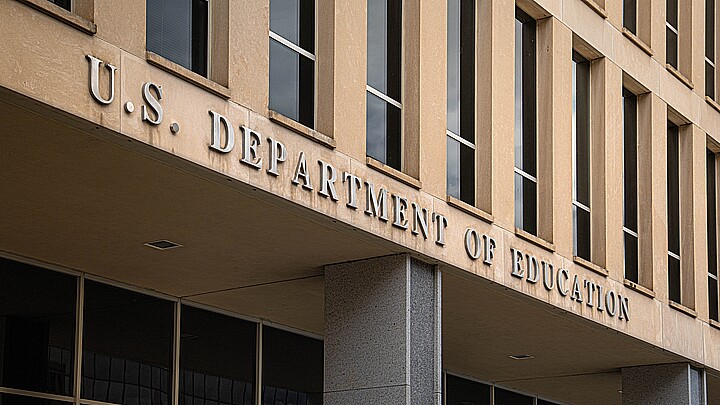Education
Public university evicts, disciplines student for telling others it gave her vaccine exemption
Case could wind up in federal appeals court that has repeatedly ruled against universities for First Amendment violations in cases on religious and political speech and COVID vaccine mandates
May 26, 2022 11:19pm
Updated: May 27, 2022 12:10pm
A Michigan public university retaliated against a Russian immigrant for telling others how she got a religious exemption from its COVID-19 vaccine mandate, evicting her from campus housing and putting a disciplinary record in her student file, according to her lawyers.
After Inara Ramazanova posted her requested and received exemption in a private Facebook group for similarly situated people nationwide, Oakland University deemed this "collusion or conspiracy" to help others evade its rules, the First Liberty Institute wrote to OU in a pre-lawsuit warning letter Thursday.
Refusing to confess to collusion or conspiracy, Ramazanova went through an OU disciplinary proceeding last summer that considered no evidence, according to the religious liberty legal defense organization. The University Conduct Committee said it wanted to dissuade students from "providing false information to others for the sake of gaining a religious exemption," wrote the nonprofit.
The committee interviewed only one witness, the administrator of the Facebook group, who testified Ramazanova's post responded to "general questions" in the forum "regarding religious accommodation requests," not specific to OU, according to the legal letter. Three days later, the panel confirmed the "collusion or conspiracy" charge.
Ramazanova's removal from campus violated the terms of the exemption, which lets students attend class in person and live on campus as long as they take weekly COVID tests, First Liberty argued. She wasn't able to use a housing scholarship but still had to come to campus weekly to test, "since it was the only no-cost testing option available to her."
Ramazanova graduated five months early in December, but the disciplinary record will remain in her file until 2028, the letter said.
The university not only violated their client's constitutional rights but also the Fair Housing Act, First Liberty Deputy General Counsel Justin Butterfield claimed in a press release. "They owe her an apology and a clean academic record," he said, to atone for OU's "punitive and vindictive" actions, which will damage her "future pursuits."
Asked why it's not seeking an out-of-court monetary settlement, given the gravity of the allegations, Butterfield told Just the News that First Liberty is "hopeful" the university will comply "without our having to go to court and seek damages, but doing so is an option."
The warning letter says Ramazanova will seek punitive damages under the Fair Housing Act if OU doesn't comply with her demands within 10 days. According to the law firm Fox Rothschild, the nearest precedent on punitive damages comes from employment law, which requires a defendant to "discriminate in the face of a perceived risk that its actions will violate federal law."
First Liberty is demanding that OU expunge Ramazanova's "conspiracy or collusion" record, issue her a written apology, and publicly assure students that they "may exercise their constitutional right to freedom of speech without being subjected to the same retaliatory and discriminatory treatment."
If First Liberty sues, OU could have an uphill battle in the 6th U.S. Circuit Court of Appeals, which oversees federal courts in Kentucky, Michigan, Ohio and Tennessee.
In recent years, the 6th Circuit has repeatedly found public universities responsible for First Amendment violations in cases on religious and political speech and COVID vaccine mandates. The schools the court has ruled against include the University of Michigan, Wayne State and Ohio's Shawnee State.
U-M and the University of Cincinnati were also responsible for sweeping rulings on due process in campus disciplinary proceedings.
Ramazanova's family immigrated to the U.S. 13 years ago, and they have always refused to vaccinate her on religious grounds, First Liberty said. OU's requirement for written exemption requests was new for the student, so she joined the Facebook group as part of her research. She also obtained a sample letter that "accurately represented her religious objection" and thus copied "relevant content" into her own request.
She received the exemption eight days after submitting the request, then shared both in the Facebook group "to help those who were struggling with expressing their sincerely held religious beliefs in writing," First Liberty recounted.
OU made the same error as Pennsylvania's Mahanoy Area School District, the subject of a sweeping Supreme Court ruling on student speech rights last year, for presuming to "regulate expression that does not occur on school grounds or at a school-sponsored event," argued First Liberty, adding that earlier SCOTUS precedent gives colleges even less leeway to regulate expression.
Eviction from campus met the conditions for a retaliation claim, the lawyers wrote, because her speech was protected, the sanction would "deter a person of ordinary firmness" from continuing that speech, and OU was motivated "at least in part" by her protected speech.
"Providing information on how to request a religious accommodation that was offered by OU" falls squarely within the Fair Housing Act's protections for those who have "aided or encouraged others" to exercise their religious rights under the law, the letter said.
OU did not answer Just the News queries about First Liberty's allegations.










